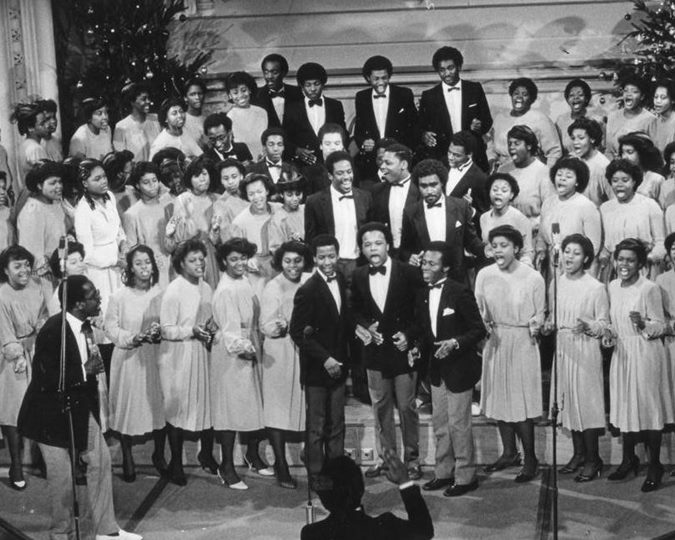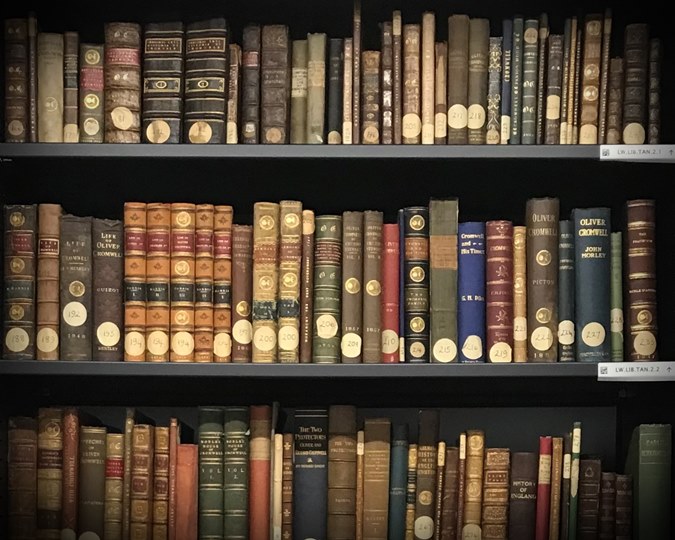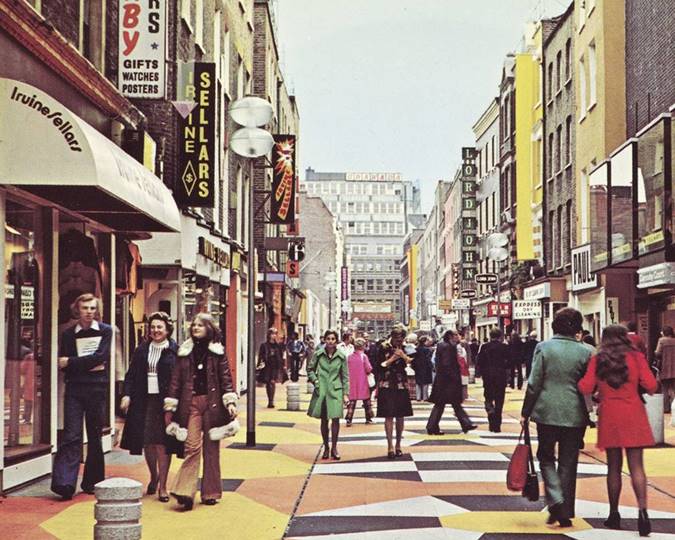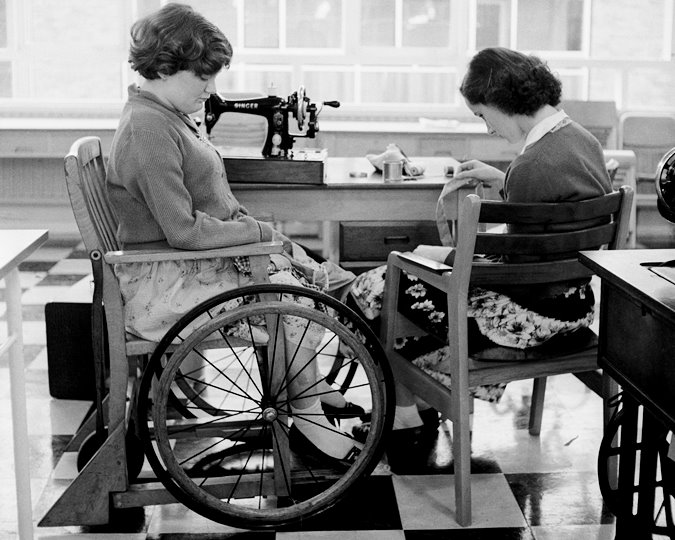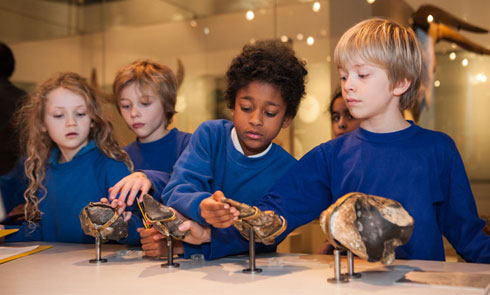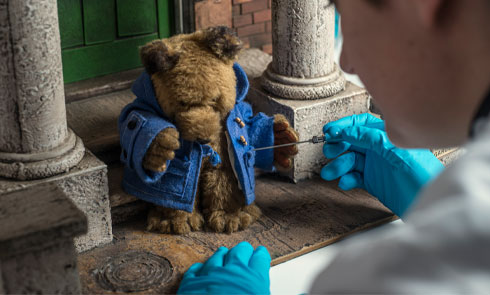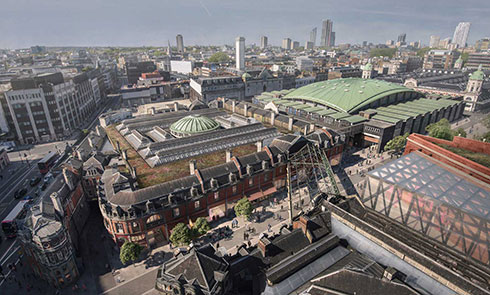- Plans approved to create new London Museum and regenerate Smithfield
- From DJ sets to late-night cinema Museum of London announces blockbuster festival weekends to close London Wall
- fabric to become world’s first nightclub-in-residence in a Museum
- Major new Museum of London Docklands exhibition uncovers London’s 700 year history of public executions
- 15-year-old Londoner takes over city bus stops as winner announced of Museum of London, BBC 100 & TfL poetry competition
- Museum of London unveils Greatest Hits mural to celebrate 45 years at London Wall
- Museum of London marks 100 days to closure with free event and giveaways for visitors
- Museum of London raises a further £7 million towards its new home at West Smithfield
- Museum of London celebrates 45 years at London Wall as it commences countdown to closure
- Sunil Gupta’s ‘Pretended’ Family Relationships photo series acquired by the Museum of London
- Putin’s Happy – Museum of London acquires Jeremy Deller film revealing a divided country and a city full of protest
- The Museum of London celebrates city's sporting hero with new display on Harry Kane
- The Museum of London presents 'Grime Stories: from the corner to the mainstream', opening 17 June 2022
- Joe Corré, Jordan and Richard Boon to appear in an uncensored, live Punk.London debate
- 300 year old love message embroidered in human hair to go on display at the Museum of London Docklands
- Museum of London begins countdown to West Smithfield relocation
- Douglas Gilmore appointed Managing Director of Museum of London Docklands
- New research to shed fresh light on the impact of industrialisation
- The Prince of Wales becomes Museum of London Patron
- The Clash’s Paul Simonon’s famous Fender Precision bass to go on display
- Behind the Scenes of the Museum of London
- Stanton Williams and Asif Khan to design new Museum of London at West Smithfield
- Museum of London acquires ensemble inspired by the creativity of the Windrush generation
- Feeding Black: Community, Power & Place opening 16 July at Museum of London Docklands
- Museum of London acquires NHS sign from ZSL London Zoo’s Giraffe House as part of Collecting COVID
- Museum of London sites set to reopen 19 May with extensions of Dub London: Bassline of a City and Havering Hoard: A Bronze Age Mystery
- Museum of London acquires Mayor of Lambeth’s homemade ceremonial chain as part of Collecting COVID project
- Museum of London acquires ‘viral’ Tweets for Collecting COVID
- Weavers’ Company donate £100,000 to the Museum of London’s move to Smithfield
- Museum of London receives Trump Baby blimp ahead of the Presidential Inauguration
- Museum of London to collect COVID dreams
- Arsenal’s captain donates Black Lives Matter shirt to the Museum of London
- Dub London: Bassline of a City opening 2 October at the Museum of London
- Public statement October 2020
- London Sugar & Slavery gallery
- New major exhibition Havering Hoard: A Bronze Age Mystery opens 11 September at the Museum of London Docklands
- Robert Milligan statue statement
- Museum of London sites to reopen 6 August with four-week extension of The Clash: London Calling display
- Public statement
- Museum of London releases first ever recorded soundscapes of London alongside new recordings of London in lockdown as part of Collecting COVID project
- Design concepts for new museum at West Smithfield revealed
- The Museum of London collects shared experiences of Ramadan in lockdown as part of Collecting COVID project
- Unheard oral histories are released by the Museum of London to mark Windrush Day
- Collecting Covid: the Museum of London seeks to mark unprecedented pandemic for the future
- Millicent Fawcett’s ‘Steadfastness and Courage’ brooch to go on permanent display for the first time
- Museum of London submits plans to create a new world-class cultural destination in West Smithfield
- King Charles I’s execution vest to go on display in new major exhibition
- Museum of London to celebrate Dub Reggae and its influence on the capital
- East End bastion Syd’s coffee stall to be donated to the Museum of London
- Free exhibit celebrating the making of The Clash’s ground-breaking album ‘London Calling’ now open
- Museum of London acquires extremely rare plate that belonged to Samuel Pepys
- The story of the Krios of Sierra Leone to be told in the Museum of London Docklands’ latest display
- Museum of London to host The Clash: London Calling exclusive free exhibit of over 100 personal items
- The largest ever Bronze Age hoard in London has been discovered
- Designs for Museum of London’s new West Smithfield home revealed
- Smithfield Street Party
- Museum of London hopes to acquire both the Trump Baby Blimp and the Sadiq Khan Blimp as part of their permanent collection
- Secret Rivers
- Beasts of London
- Recently acquired panorama goes on display for the first time at the Museum of London
- Museum of London appoints leading names to Board of Governors
- Earliest skull ever mudlarked from the Thames to go on display at the Museum of London
- Museum of London acquires beautiful panorama of lost Houses of Parliament
- Bengali arts and culture on show at the Museum of London Docklands family festival.
- Bonus Levels: Artist Lawrence Lek invites viewers to re-imagine future London
- Young Londoners to take over Museum of London this March
- The Museum of London hopes to acquire Whitechapel 'fatberg'
- Treasured children’s author Jacqueline Wilson’s latest book Wave Me Goodbye inspires family day at the Museum of London Docklands
- The City is Ours: A Tale of New Cities
- Adventures in Peter Pan’s Neverland at Museum of London Docklands
- Photography of Londoners and their pastimes on show at Museum of London
- Tracking London’s most talked about topics and emojis
- London Nights: Museum of London unveils the city at night in major photography exhibition
- Museum of London Docklands celebrates Chinese New Year this February half term
- Statement on 20 May 2017
- Whitechapel’s famous monster fatberg is coming to the Museum of London
- Museum of London Docklands to showcase rare Roman sarcophagus in first public display
- Malcolm Reading Consultants appointed to run West Smithfield International Design Competition
- 8,000 years of human history on display at the Museum of London Docklands
- An Idea for a Future London open call winner announced
- Five Museum of London apprentices appointed
- London Visions: Hypothetical scenarios of a future London
- “Reputational whitewashing” investigated in latest display at the Museum of London Docklands.
- Rare George Cross medal goes on display at the Museum of London Docklands
- Museum of London displays recently acquired Sutherland drawings in new exhibition of Blitz artwork
- What does the future hold for London and cities around the world?
- Mayor of London and City of London Corporation pledge support for new Museum of London at West Smithfield
- Smithfield street party: Museum of London celebrates 150 years of Smithfield markets
- Museum of London uses Minecraft to recreate the Great Fire of 1666
- Museum of London releases third and final Great Fire 1666 Minecraft map
- Taste not waste: Be inspired by unique recipes using your leftover food for a more sustainable future London
- Museum of London opens most theatrical exhibition ever to mark 350th anniversary of the Great Fire of London
- Museum of London acquires 100 menswear items worn by townscape consultant Francis Golding
- Votes for Women programme
- Technology replacing jobs won’t halt our working spirit
- Rare Victoria Cross with mysterious story to go on display at the Museum of London
- New display at the Museum of London traces the capital’s obsession with ice skating
- Rare tools give insight into working lives of Roman Londoners at the Museum of London
- New display reveals complex history of British Army’s West India Regiments
- Historic vessels Knocker White and Varlet set sail to new home at Trinity Buoy Wharf
- Missing Bake Off? Take your taste buds back in time with 17th century gingerbread
- Paddington returns to Museum of London
- Learn how to code like a pro and celebrate digital technology at the Museum of London’s free family festival
- 17th century fire engine restored for Great Fire exhibition
- Museum of London boosts Great Fire collections with mysterious manuscript
- Major new gallery at Museum of London Docklands explores history of the world's largest docks
- Sir Edward Lister joins Museum of London Board of Governors
- West Smithfield Design Competition shortlist announced
- Museum of London bolsters its art collections
- West Smithfield International Design Competition launched
- Another record-breaking year for the Museum of London
- After dark at The Night Museum
- New display about the life of ‘The Royal African’ and the slave trade
- Statue of Robert Milligan joins Museum of London collection
- Our statement on Fabric
- People of Punk bring the year of celebration to an end
- Tunnel: the archaeology of Crossrail
- Museum of London to make 5,000 stories from the capital available to the public for the first time
- The Museum of London Docklands announces major exhibition with public call out to find iconic pieces of fashion history
- Trump Baby Blimp undergoes test inflation
- Museum of London Docklands launches the Dodger family trail, based on BAFTA-winning BBC TV series, Dodger
- Museum of London Docklands announces Indo + Caribbean: The creation of a culture
- Young Londoners push for a more sustainable city in Museum of London report
- Museum of London Docklands announces street party to mark its 20th anniversary, with Vanity Milan, star of Ru Paul’s Drag Race, to headline
- Museum of London formally appoints Sir Robert McAlpine as Construction Management Company on Smithfield project
- Rare Festival of Britain sculpture discovered in London garden will join Museum of London collection
- Jennifer Francis appointed Director of External Affairs at Museum of London
- Museum of London announces acquisition of major sports collecting project, including Wimbledon oral histories
- Coats worn by Princess Diana and Dot Cotton to go on display as part of a major new exhibition
- Bridget Banton and Samir Patel join Museum of London Board of Governors
- Museum of London issues public call for iconic signs from across the capital
- First witness to the Great Fire of London uncovered
- Opening Friday 13 October – Fashion City: How Jewish Londoners shaped global style at Museum of London Docklands
- Foundation stone unveiled for the new London Museum as principal construction works begin
- New research finds Black women of African descent more likely to die of medieval plague
- Rare tie discovered in charity shop goes on display in London fashion exhibition
- Museum of London Docklands launches new display in collaboration with Mind and Taking Shape Association
- Acclaimed Fashion City exhibition extended to 7 July 2024 with free student ticket offer for April and May
Dub London: Bassline of a City opening 2 October at the Museum of London
2 October 2020
London has been a hub for artists and production since the mid-1970s, with recording studios, record labels, record shops, radio stations and clubs peppered across the city. The display, Dub London: Bassline of a City, will not only explore the music’s influence but its wider cultural and social impact including the origins of the record shop as a community space, the continuing role of sound systems at events like Notting Hill Carnival both historically and up to present day and the religious, political and spiritual themes that form the pulse of dub culture and music.
- The iconic speaker stack belonging to Channel One Sound System that has appeared every year at Notting Hill Carnival since 1983
- A bespoke record shop created in collaboration with Papa Face of Dub Vendor Reggae Specialist with a selection of 150 vinyl records available to listen to* chosen by fifteen London based independent record shops
- Collaborations with notable names and organisations including Mad Professor, Rastafari Movement UK, Sisters in Sound, Channel One Sound System and representatives of various independent record shops across London
- Historic and contemporary photography, including 21 newly acquired photographs by Dennis Morris, Charlie Phillips, Eddie Otchere, Adrian Boot, Jean Bernard Sohiez and Richard Saunders as part of Curating London’s contemporary collecting
- Oral histories and/or text from Nzinga Soundz, Gaz Mayall, Dennis Bovell and more
Dub London: Bassline of a City is part of Curating London, a four-year contemporary collecting programme with funding from Arts Council England, and will be free to visit from Friday 2 October – 31 January 2021.

